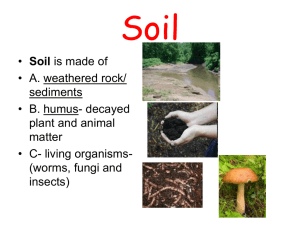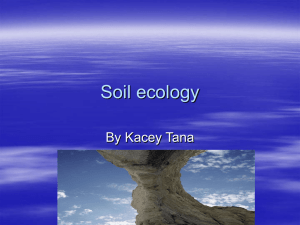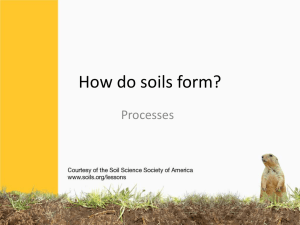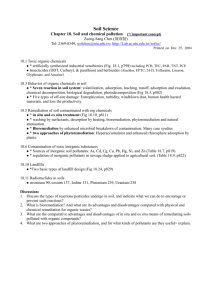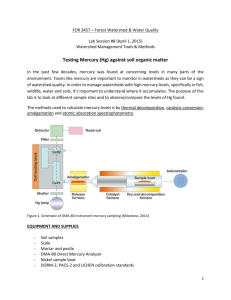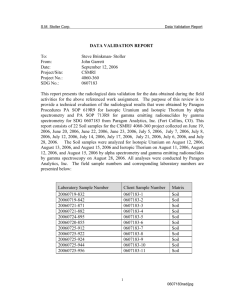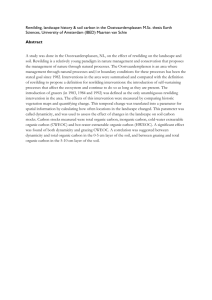CARBON IN SOILS
advertisement
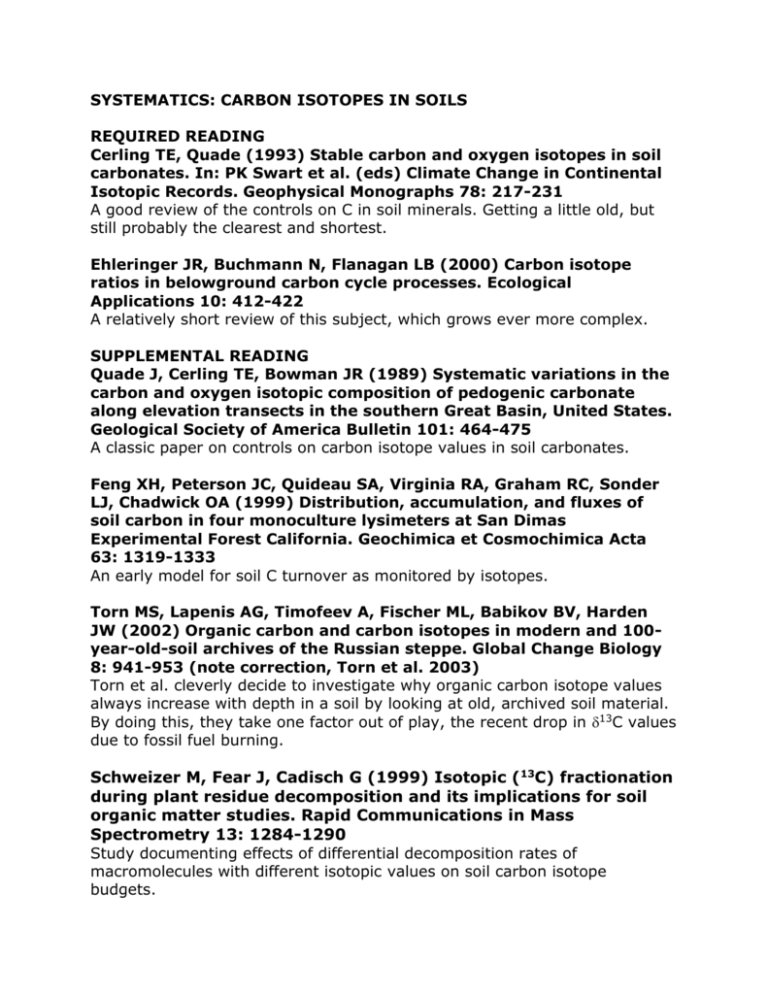
SYSTEMATICS: CARBON ISOTOPES IN SOILS REQUIRED READING Cerling TE, Quade (1993) Stable carbon and oxygen isotopes in soil carbonates. In: PK Swart et al. (eds) Climate Change in Continental Isotopic Records. Geophysical Monographs 78: 217-231 A good review of the controls on C in soil minerals. Getting a little old, but still probably the clearest and shortest. Ehleringer JR, Buchmann N, Flanagan LB (2000) Carbon isotope ratios in belowground carbon cycle processes. Ecological Applications 10: 412-422 A relatively short review of this subject, which grows ever more complex. SUPPLEMENTAL READING Quade J, Cerling TE, Bowman JR (1989) Systematic variations in the carbon and oxygen isotopic composition of pedogenic carbonate along elevation transects in the southern Great Basin, United States. Geological Society of America Bulletin 101: 464-475 A classic paper on controls on carbon isotope values in soil carbonates. Feng XH, Peterson JC, Quideau SA, Virginia RA, Graham RC, Sonder LJ, Chadwick OA (1999) Distribution, accumulation, and fluxes of soil carbon in four monoculture lysimeters at San Dimas Experimental Forest California. Geochimica et Cosmochimica Acta 63: 1319-1333 An early model for soil C turnover as monitored by isotopes. Torn MS, Lapenis AG, Timofeev A, Fischer ML, Babikov BV, Harden JW (2002) Organic carbon and carbon isotopes in modern and 100year-old-soil archives of the Russian steppe. Global Change Biology 8: 941-953 (note correction, Torn et al. 2003) Torn et al. cleverly decide to investigate why organic carbon isotope values always increase with depth in a soil by looking at old, archived soil material. By doing this, they take one factor out of play, the recent drop in 13C values due to fossil fuel burning. Schweizer M, Fear J, Cadisch G (1999) Isotopic (13C) fractionation during plant residue decomposition and its implications for soil organic matter studies. Rapid Communications in Mass Spectrometry 13: 1284-1290 Study documenting effects of differential decomposition rates of macromolecules with different isotopic values on soil carbon isotope budgets. Wynn JG, Bird MI (2007) C4-derived soil organic carbon decomposes faster than its C3 counterpart in mixed C3/C4 soils. Global Change Biology 13: 1-12 C4 plants decompose faster than C3 plants, complicating attempts to study vegetation shifts from soil organic matter or respired CO2.

